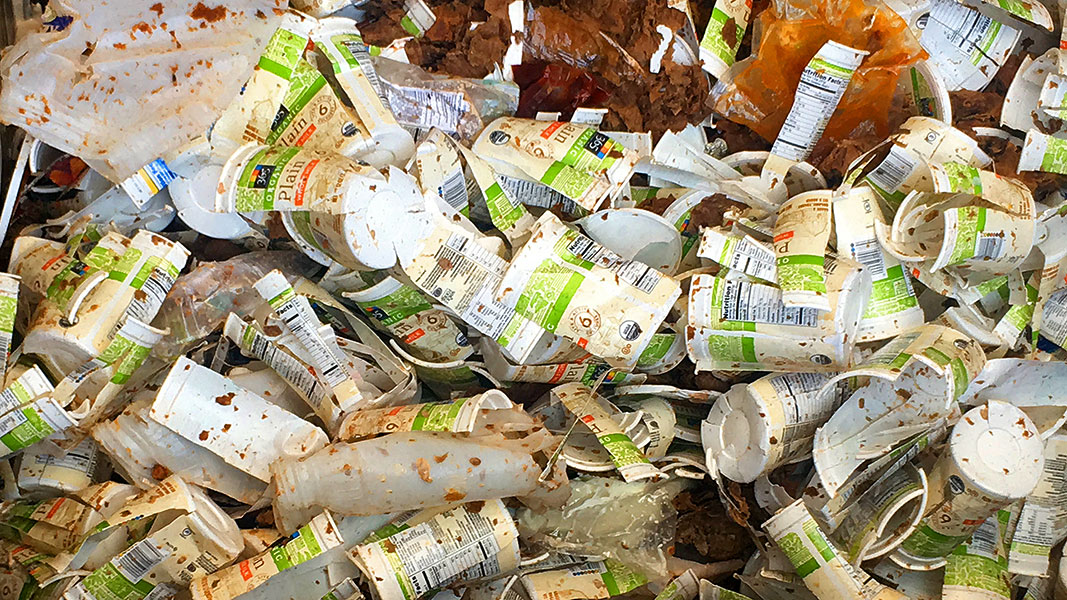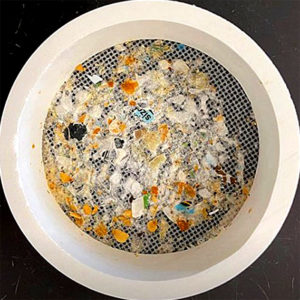Top: Plastic container remnants from food waste depackaging process. Photo by Robert Spencer
Vermont Governor Phil Scott signed a bill in early June 2022 that essentially places a moratorium on new depackaging facility certifications in the state. H.446, an act relating to miscellaneous natural resources and development subjects, “prohibits the Secretary of Natural Resources from issuing a new solid waste facility certification for a food depackaging facility or amending an existing solid waste facility certification that results in an increase of capacity at a currently certified food depackaging facility until the Agency of Natural Resources (ANR) adopts, by rule, requirements for the operation of food waste management facilities in the State. The act requires ANR to convene a collaborative stakeholder process to make recommendations on the proper management of packaged organic materials and to report those recommendations to the General Assembly. In addition, the act requires ANR to submit to the General Assembly a report regarding the prevalence of microplastics and per- and polyfluoroalkyl substances (PFAS) in food waste and food packaging in Vermont.”
Researchers at the University of Vermont (UVM) have been studying the presence of microplastics in food waste, including in slurries generated by depackaging as well as in digestate and compost that includes food waste streams. They conducted a literature review that identified microplastic contamination (plastic particles <5 millimeters (mm)) as “a near ubiquitous challenge” in organics recycling. In May, UVM received about $200,000 from the U.S. EPA to continue its microplastics research, as well as to assess current capacity at on-farm digesters to accept food wastes, and the potential impacts of food waste codigestion on biogas production as well as on nutrients and microplastics in digestate.














